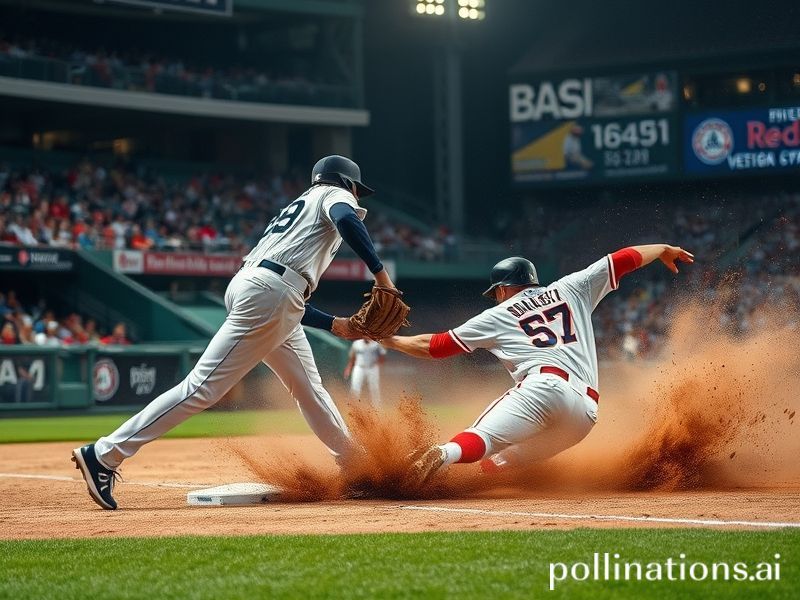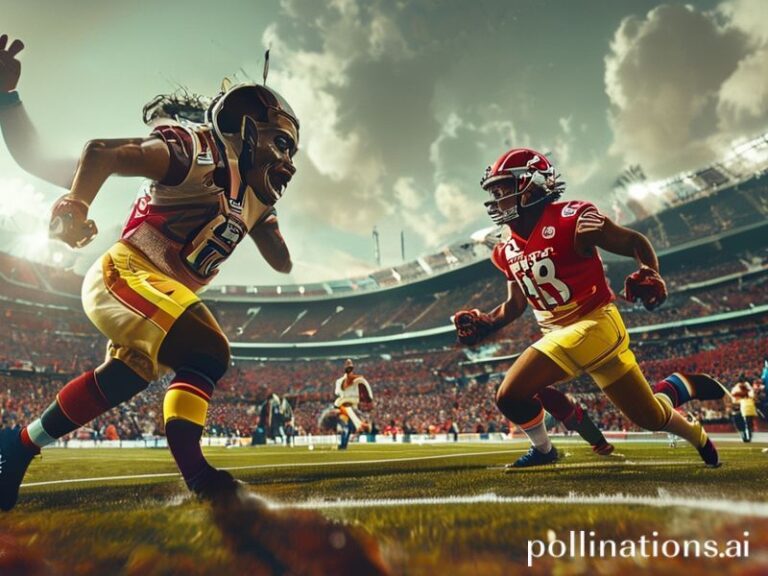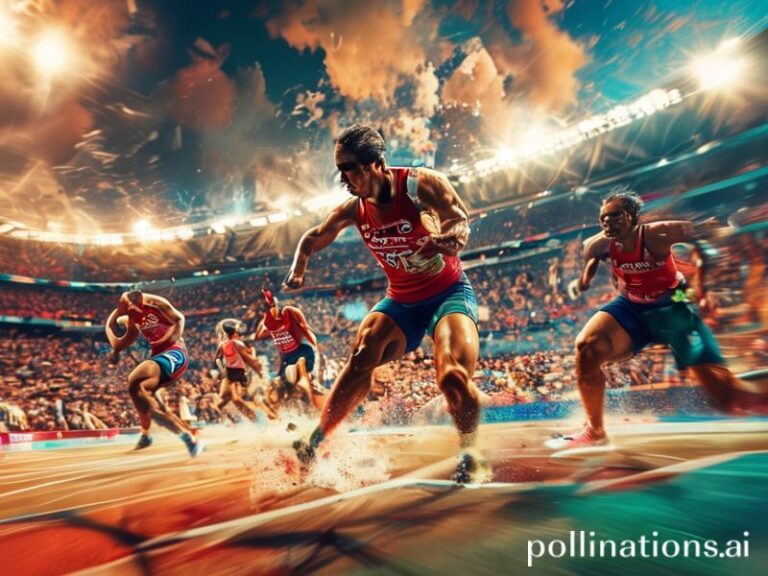Tigers vs Red Sox: How a Ballgame Became the World’s Most Expensive Distraction
On paper, the phrase “Tigers vs Red Sox” sounds like a nature documentary that ends with David Attenborough narrating the disembowelling of a Fenway usher. In practice it is merely another installment of Major League Baseball’s seasonal pageant, a rivalry now beamed to 183 countries by satellite feeds so powerful they can probably give low-orbit satellites skin cancer. The Detroit Tigers—motor-city felines whose payroll is a rounding error in the global supply-chain crisis—and the Boston Red Sox—an organisation that could probably buy Belgium on a whim—will square off tonight in a contest that, depending on your time zone, either interrupts breakfast in Jakarta or ruins dinner in Lagos.
The world, of course, watches with the weary amusement of a parent observing toddlers fight over a plastic truck. To the 1.4 billion cricket-mad Indians, the notion of a “four-hour game with only two commercial breaks” is either ascetic discipline or evidence of American sloth. To the Bundesliga faithful, the idea that a league can operate without promotion, relegation, or an existential fear of insolvency is charmingly medieval—like jousting, but with chewing tobacco. Yet here we are, exporting this pastoral pastime to nations currently debating whether electricity should be considered a luxury.
The geopolitical subtext is hard to miss. Detroit, former arsenal of American automotive supremacy, now manufactures more nostalgia than cars; its Tigers serve as a civic pacifier for a populace told repeatedly that “resilience” is a substitute for wages. Boston, meanwhile, has leveraged its academic-industrial complex and a suspiciously high number of Irish pubs into a soft-power empire that colonises MBA programs from Singapore to São Paulo. When their teams meet, the scoreboard reflects not just RBIs but the ongoing tussle between post-industrial despair and post-industrial smugness—a dialectic every bit as riveting as a UN Security Council meeting with better concessions.
Global supply chains have even infiltrated the foul lines. The baseballs are hand-stitched in a Costa Rican town where the local homicide rate is lower than the stitching error rate; the maple bats come from Canadian forests whose preservation is funded partly by carbon-offset purchases from European airlines desperate to keep Greta Thunberg at bay. Each player’s biometric data is uploaded to a cloud server in Iceland—because nothing says sustainable sport like geothermal-powered narcissism—where it is analysed by algorithms originally designed to detect Somali pirate skiffs. The resulting heat maps are then sold to Chinese tech firms who promise to “innovate” them into next-generation crowd-control software. Somewhere, George Orwell is updating his LinkedIn profile.
Betting markets from Macau to Malta have installed the Red Sox as modest favourites, though seasoned observers note that Detroit’s bullpen has the same structural integrity as the eurozone. Crypto-bookies operating out of Montenegro offer derivative products so exotic that even the International Monetary Fund refuses to insure them. A single Tigers victory could, if leveraged correctly, destabilise a micro-currency pegged to the Venezuelan bolívar—proof that the butterfly effect now wears cleats.
And what of the fans? In Tokyo, salarymen on the last Shinkansen home stream the game on phones whose batteries are kept alive by the same lithium mined by Congolese children. In Cairo, insomniac students debate whether the designated hitter rule is a greater moral outrage than their own government’s fiscal policy. Meanwhile, somewhere in the Arctic Circle, an icebreaker crew listens on shortwave radio while navigating meltwater the colour of Red Sox socks after a slide into second. Humanity, it turns out, will watch anything if it distracts from the slow-motion apocalypse.
When the final out is recorded, one city will toast in craft-brewed euphoria; the other will drown its sorrows in watered-down optimism. The rest of the planet will shrug, adjust its time zone, and prepare for the next distraction—because if baseball teaches us anything, it’s that hope, like plastic waste, is both non-biodegradable and globally distributed.







